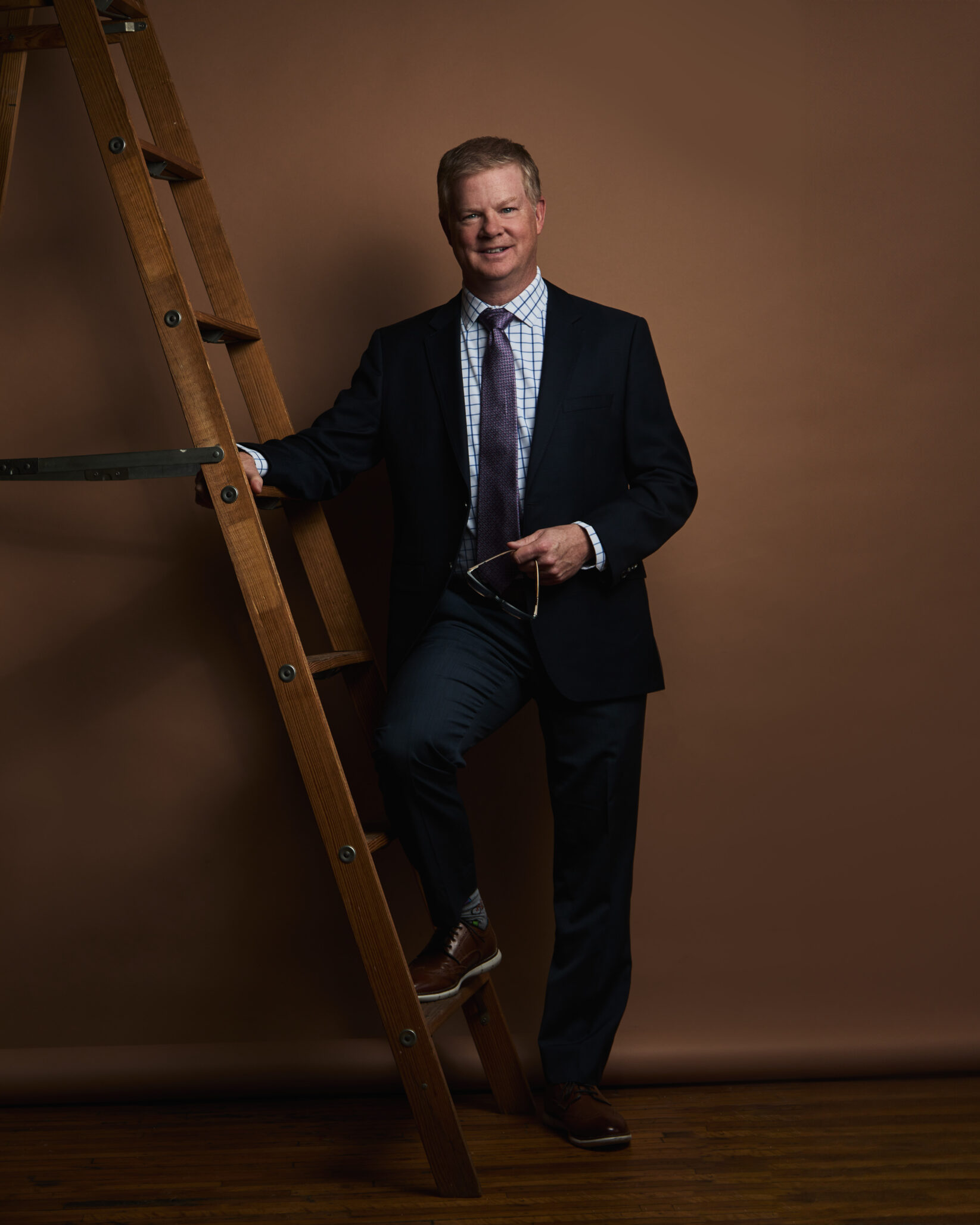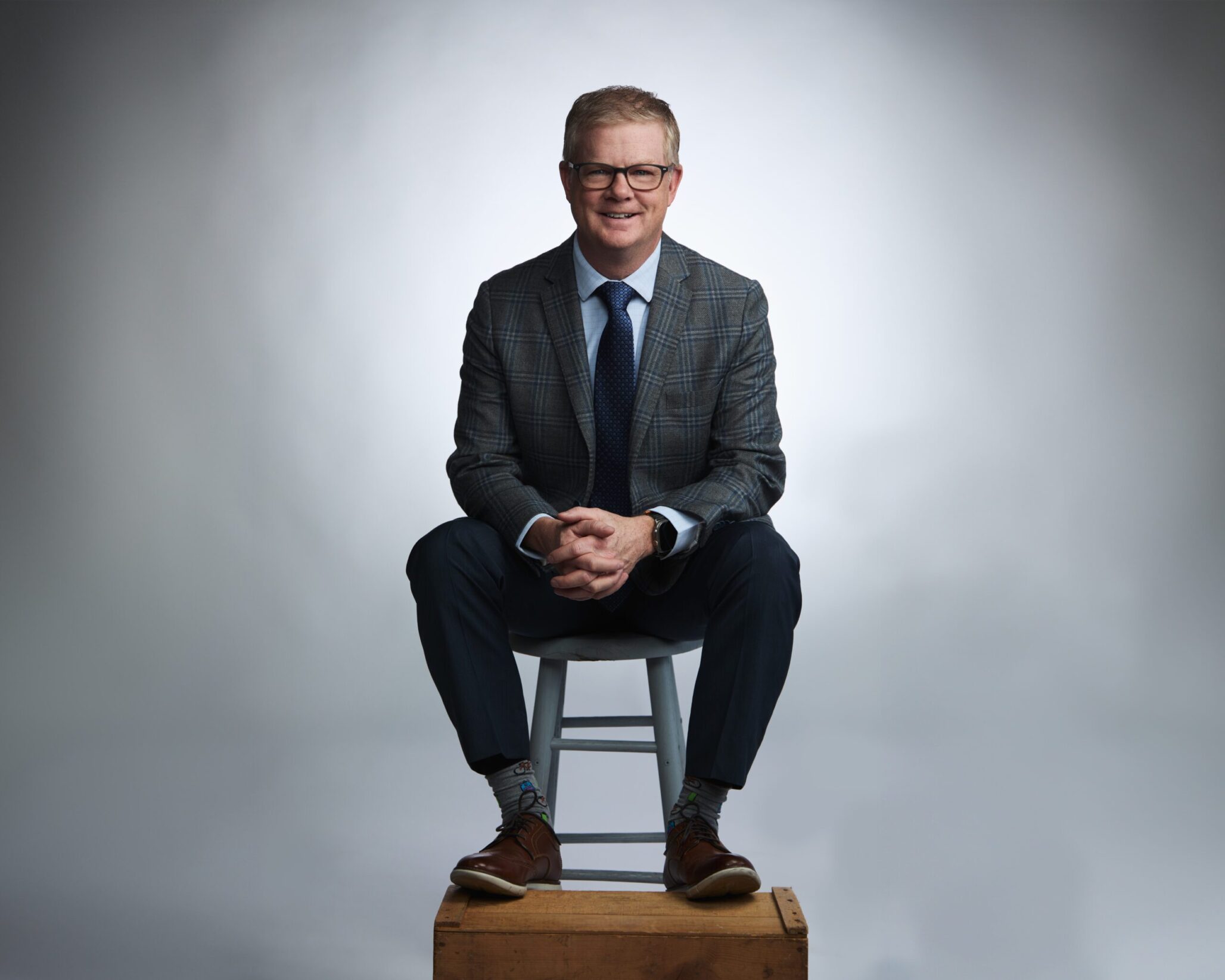Steen says independents should focus on stakeholders.
In the dynamic world of agriculture, Legacy Agripartners CEO Colin Steen has navigated a diverse path. Steen’s journey through companies like Syngenta Ventures, NK Seeds and Golden Harvest has been marked by a consistent principle: unwavering focus on the farmer and stakeholder relationships.
“It’s about never losing sight of who you’re serving,” he explains, emphasizing the importance of modeling behaviors that underline this focus. “When the team sees it’s vital for me, it becomes a priority for them too.”
His experiences, ranging from internal stakeholder management at Syngenta Ventures to direct customer engagement at Legacy Agripartners, reveal a versatile approach to leadership. As chairman of the board at EarthOptics, he adopts a unique position of being the liaison between investors and the CEO and operational leadership.
“It’s a unique opportunity to work with the CEO and the investors to make sure the leadership understands what the investors are asking,” he says. “I’m basically making sure nothing is lost in translation. But it’s also similar to my other roles where I spend time listening to the stakeholder or the farmer and learning what’s important to them and how we can earn more of their business and serve them better.”
Smaller company, big vision
Steen says his decision to move from a larger corporation to the independent side of the seed sector was driven by a desire for closer connections with end-use customers and the appeal of managing a more compact team. He appreciates the nimble and distinct niches these smaller companies occupy, allowing them to compete effectively with major industry players.
“With Legacy Agripartners, corn and soybeans are a big part of our business, well over half of our business,” Steen explains. “The four majors have 80% of the market share of those crops. We are also big into smaller niche crops like triticale and alfalfa. They are big enough crops that we can be successful and grow that part of the business without having to compete against the majors.”
Going from a company with more than 25,000 employees to one of less than 100 was also appealing to Steen.
“I felt like this would be a great way for me to grow as a leader and face some of those challenges of being a smaller business with fewer employees,” he says. “But there is also just tremendous potential for growth in alfalfa and triticale.”
Legacy Agripartners is a holding company that owns three independent seed entities: TriCal Superior Forage, DF Seeds, and Legacy Seeds. Each has its own unique specialization but operates under the umbrella of Legacy Agripartners, which provides strategic and operational support while respecting their autonomy.
“The aim is to foster growth while retaining their independent identities,” Steen says.
Importance of independent seed companies

The independent seed sector has a much higher percentage of non-GMO and organic offerings. Steen says he’s seen slower-than-expected growth in non-GMO and organic markets in the United States, with fewer than 350,000 total acres of organic corn and soybeans.
“I thought that number would be closer to a million by now,” he says. “It’s an area still ripe for growth, but the reality has been more modest than anticipated. The demand seems to be increasing, but that has not led to an increase in planted acres yet.”
As he prepares to take on the new role of president at the Independent Professional Seed Association (IPSA), Steen’s priorities are clear: maintain consistency, expand membership and enhance the competitiveness of independent seed companies. He emphasizes the importance of independents in the agricultural landscape, noting their deep connection to local communities and the personalized solutions they offer to farmers.
“I joined the (IPSA) board two years ago,” Steen recalls. “I have witnessed fantastic work by my predecessors Chris Cornelius and Chris Latham. We need to focus on increasing our membership. There are wheat, sorghum, triticale, grass and cover crop seed companies out that we should be looking at to join us that really fit the IPSA model. We haven’t been as focused on them because we’ve concentrated more on corn, soybeans and bigger crops. But these other crop seed companies have the same challenges we have with corn and soybeans with regards to employee retention and existing in a world of bigger competitors, global competitors.”
Steen said the independents should also work closely with the “big four.”
“We need them to understand the importance of the independents to their business,” he says. “We are a major part of Midwest U.S. agriculture and we have a real role to play. We are the local, trusted voice to farmers. Most of the smaller company founders grew up in these towns. Their logos are the ones that people have seen in these small communities forever. We want to continue to honor that brand equity that we have and the knowledge we have of what farmers need and give them the best solutions we can.”
A vision for independent seed companies
Steens says the farmer focus is something that independents should always prioritize.
“When we focus on growth and profitability of the farmers, we have a responsibility to get it right,” he says. “I can’t just go and prescribe a set of solutions and a mix of hybrids and varieties of corn, soybeans, or alfalfa that aren’t going to work and think that I’m not ever going to see this person again. We’re likely going to be in church together or see each other at the local post office or the local baseball games or football games.”
Steen touches on the broader industry landscape, stressing the need for recognition and understanding of the independent sector’s role by agencies like the U.S. Department of Agriculture.
“We don’t seek government intervention, but awareness and understanding of our unique contributions are crucial,” he says. “I don’t think we want to rely on the government to make sure we’re competitive. But I think it’s a constant education process. We need to interact with government officials and show them the role we play in keeping local jobs and local communities alive. We need to be involved in the policymaking process so we can make sure we don’t lose our rural communities.”
Life beyond the boardroom
Away from the complexities of agribusiness, Steen fills his time with family life, hockey and outdoor activities like biking.
“When I’m not CEO-ing, it’s all about family, community and staying active,” he shares. “I love to volunteer, help out in the community and give back in some way.”
A native of Weldon, Saskatchewan, Canada, Steen grew up playing goalie on local hockey teams. Now, he spends a large chunk of his free time wearing yet another leadership hat: the role of president of the Osseo-Maple Grove Hockey Association. He manages more than 1,100 players in the second-largest hockey association in Minnesota.
“I enjoy being at the hockey rink with my family,” he says. “Cheering on the boys is where I love to be.”
Steen holds a bachelor’s degree in agriculture from the University of Saskatchewan and a master’s in business administration from the University of Guelph. He grew up on a grain and cattle farm in Weldon, Saskatchewan. Steen and his wife Angie moved to the United States in 2003 and spent several years in Omaha, Nebraska, and Boston, Massachusetts, before moving to Maple Grove, Minnesota in 2009. They have two sons, Erik (18) and Luke (15).











